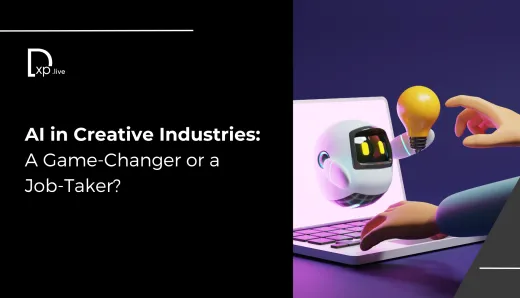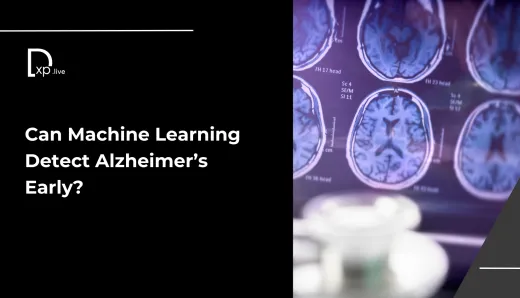Why Tailored Customer Experiences Outperform Hyper-Personalization

In the age of digital marketing, there’s a constant push to make interactions more personalized. Hyper-personalization, which promises to tailor every interaction to the individual customer, has long been promoted as the pinnacle of customer engagement. But is more personalization always better? Increasingly, the answer appears to be no. Instead, a more flexible, customer-driven approach known as tailored customer experiences is emerging as a superior alternative.
Businesses looking to remain competitive must reexamine their strategies and focus on creating customer experiences that adapt intelligently and empathetically to real-time behavior. Let’s explore why tailored experiences outperform hyper-personalization and how this shift can drive sustainable growth for businesses.
The Problem with Hyper-Personalization
At first glance, hyper-personalization seems like a marketer’s dream: the ability to anticipate customer needs down to the finest detail and deliver highly customized interactions. In reality, though, this strategy often falls short. Here’s why:
- Creepiness Factor: Hyper-personalization can feel intrusive to customers. Imagine receiving a notification or an ad so specific it seems like your every move is being monitored. That level of detail, while possible, often makes customers uncomfortable. Instead of enhancing the relationship between brand and consumer, it can erode trust.
- Costly and Complex: Hyper-personalization requires enormous investment in both technology and data management. To maintain a system that delivers a truly personalized experience for each individual, businesses need advanced AI models, robust customer data platforms, and teams to manage the process. The ROI of this massive expense is questionable, especially when the results don’t significantly improve customer satisfaction.
- Limited Relevance: Hyper-personalization operates on the assumption that every customer interaction needs to be tailored to their exact preferences, often disregarding context. But sometimes, consumers don’t want personalized offers or recommendations; they just want relevant, timely information.
The reality is that personalization in marketing doesn’t always need to be hyper-detailed. Instead, marketers should focus on creating interactions that are meaningful and responsive to customer needs as they arise.
Tailored Customer Experiences: The Smarter Alternative
Rather than trying to predict every single customer move, businesses can benefit more from tailoring their approach based on real-time behavior. This approach combines personalization with a deeper understanding of the customer journey, allowing brands to respond thoughtfully to current needs without feeling intrusive.
Here’s how tailored customer experiences work better:
- Real-Time Reactivity: Tailored experiences allow brands to respond to customer behavior as it happens. If a customer watches a product video, for example, a tailored approach would offer more detailed product information or a related suggestion in real-time. This not only feels more natural but also enhances the customer’s experience by offering value when it’s most relevant.
- Customer-First Approach: While hyper-personalization is often focused on what the brand thinks the customer might want, tailored experiences shift the focus to what the customer actually needs. This creates more genuine and empathetic interactions. For instance, a retail business might use real-time data to adjust its messaging based on the customer’s browsing habits, without overloading them with irrelevant ads or notifications.
- Flexibility and Scalability: Tailored experiences don’t require massive infrastructure changes or expensive AI systems to deliver value. By focusing on key behavioral triggers and making adjustments as needed, brands can provide meaningful customer interactions without the complexity of one-to-one personalization. This approach is also far more scalable, making it easier for businesses of all sizes to implement.
Why Businesses Should Make the Shift
Moving away from hyper-personalization to tailored customer experiences isn’t just about improving customer engagement. It’s also about ensuring long-term business success. Here’s how this shift can drive growth:
- Building Trust and Loyalty: Customers are more likely to return to brands that respect their privacy and understand their needs. By focusing on creating experiences that are helpful rather than intrusive, businesses can build stronger relationships and foster loyalty. This trust leads to longer-term engagement and increases the likelihood of repeat purchases.
- Higher Conversion Rates: When businesses focus on delivering value in the moment, rather than overwhelming customers with highly personalized messaging, they create opportunities for conversion that feel more natural. For example, a well-timed product suggestion based on recent browsing behavior is more likely to lead to a sale than an overly specific offer that feels forced.
- Cost Efficiency: Hyper-personalization requires extensive data collection, processing power, and sophisticated AI systems to work effectively. Tailored experiences, by contrast, can be implemented using existing customer behavior data and simple analytics tools. This approach reduces the costs associated with personalizing every interaction while still delivering relevant and meaningful content to customers.
- Adapting to Shifting Consumer Expectations: Customer preferences change rapidly. Hyper-personalization strategies that rely on static customer profiles often miss the mark when consumer behavior shifts. Tailored experiences are inherently flexible, allowing brands to adapt in real-time to new trends, preferences, and behaviors. This ensures that the brand remains relevant and responsive, even as customer needs evolve.
Leveraging Technology to Create Tailored Experiences
Technology plays a critical role in enabling businesses to deliver tailored customer experiences. While advanced AI tools are often associated with hyper-personalization, they can also be used to create more context-aware and reactive experiences. Here’s how:
- AI-Driven Analytics: AI can analyze customer behavior in real time, providing insights into how users interact with a website, app, or product. Instead of trying to predict every future move, AI can help businesses identify patterns that suggest what a customer needs right now and tailor content or recommendations accordingly.
- Dynamic Content Generation: AI-powered tools can generate content that adjusts based on real-time customer interactions. For example, if a user searches for a specific product category, the system can automatically display related products, reviews, and recommendations, all tailored to the current session rather than a pre-existing customer profile.
- Automated Chatbots and Customer Support: AI-powered chatbots can offer tailored responses based on customer queries and previous interactions. By responding intelligently to customer needs in real-time, chatbots can enhance the user experience and increase customer satisfaction without the need for hyper-personalized interactions.
Planning for a Tailored Future
Businesses that want to thrive in the future must shift their focus from hyper-personalization to tailored customer experiences. This means being more reactive, empathetic, and flexible in how they engage with customers. Tailored experiences allow brands to build genuine connections by delivering value at the right moment, without overwhelming the customer.
Regularly gathering feedback, staying attuned to shifting consumer behaviors, and using smart technology to adapt will ensure that businesses remain relevant and competitive. As customer preferences continue to evolve, a tailored approach will keep brands agile and better equipped to meet the needs of their audience.
Future Ahead: Time to Embrace Tailored Customer Experiences
It’s time to move beyond hyper-personalization and embrace the power of tailored customer experiences. By focusing on what the customer needs in the moment and leveraging technology to respond effectively, businesses can create more meaningful interactions, build stronger relationships, and drive sustainable growth.
Are you ready to create more genuine connections with your customers? Read our latest blog Is AI the Key to Revolutionizing Your Customer Experience and Growth?
Stay tuned for more insights and updates on how to transform your customer experience strategies.




